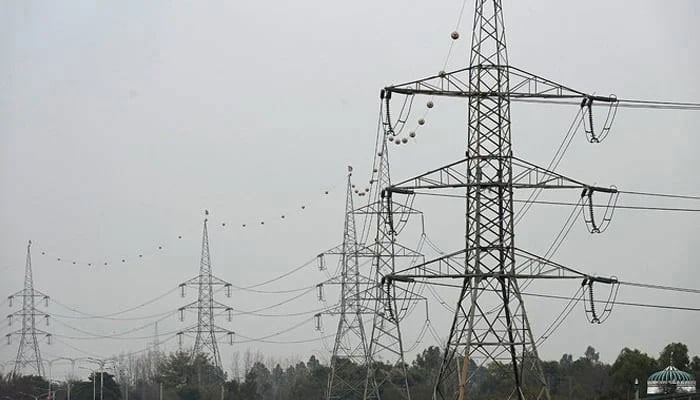On IMF diktat, CPPs get last place in gas priority list
Govt increased gas price for CPPs by Rs250 per MMBTU to Rs3,000 from Rs2,750 per MMBTU in line with IMF directions
ISLAMABAD: Following directions of the International Monetary Fund (IMF), the Petroleum Division has further revised the new priority order for gas allocation, which was earlier approved by the Special Investment Facilitation Council (SIFC). Now, under the new proposals, the captive power plants (CPPs) have been put at the last of the merit order list for gas allocation.
“We have taken this decision to put captive power plants at the end of priority order along with CNG stations in line with the Fund diktat,” relevant officials in the Energy Ministry told The News, adding that the IMF loan programme was necessary for Pakistan to survive.
In the earlier plan, revised and approved by the SIFC, the merit order for gas allocation was decided with domestic, commercial, including roti tandoors, and industry for processing purposes with priority at the top. The power and fertiliser sectors were placed as second on the altered gas priority list for gas allocation and industry for captive power plants at the third, cement at fourth, and CNG at fifth. Now under the new proposed plan, the priority for gas allocation to captive power plants has been changed from third to fifth, along with the CNG sector, which is the last on the priority order list.
The government increased gas price for CPPs by Rs250 per MMBTU to Rs3,000 from Rs2,750 per MMBTU from July 1, 2024, in line with the IMF directions. The Fund gave the government deadline of January 1, 2025 to hike the gas tariff for CPPs at par with the ring-fenced cost of RLNG, which stands at Rs3,700 per MMBTU. In the second phase, the government will increase the gas price for CPPs by Rs700 per MMBTU from January 1, 2025.
The Fund argues that captive power plants have 30-35pc efficiency, wasting the huge quantum of natural gas. “The IMF also wants to discourage gas supply to captive power plants which is why the government has further revised the gas priority allocation.”
APTMA, while representing the export industry, communicated to the commerce minister over the decision of the Petroleum Division arguing that captive power plants within the export sector are essential for their ability to ensure a reliable and efficient supply of energy. These units, a vast majority of which are cogeneration plants, not only generate electricity but also produce the heat and steam imperative for various industrial processes, including printing, stenting and bleaching.
“Downgrading the priority of these captive units would force export industries to rely on the grid electricity that is financially unviable at over 16 cents/kwh compared to 6-9 cents per unit in competing regional economies, and is prone to interruptions, voltage fluctuations and other inconsistencies. Such a shift would disrupt production, expose sensitive machinery to risk of damage and compromise the quality of export products, undermining the industry’s competitiveness in global markets.”
Moreover, APTMA goes on to say, cogeneration plants are designed to achieve efficiencies of up to 90pc, significantly higher than conventional boilers and single-cycle power plants. This makes them a more effective use of our limited gas resources, contributing to both economic and environmental benefits. Reducing the priority of gas supply to these units disregards their efficiency and the critical role they play in the export sector.
The export industry asked for the same treatment to export captive connections as has been given to export process connections in the gas allocation priority order. “This approach would ensure that export sector remains robust, competitive and capable of contributing to the national economy without facing energy-related disruptions.”
-
 18-month Old On Life-saving Medication Returned To ICE Detention
18-month Old On Life-saving Medication Returned To ICE Detention -
 Cardi B Says THIS About Bad Bunny's Grammy Statement
Cardi B Says THIS About Bad Bunny's Grammy Statement -
 Major Hollywood Stars Descend On 2026 Super Bowl's Exclusive Party
Major Hollywood Stars Descend On 2026 Super Bowl's Exclusive Party -
 Sarah Ferguson's Silence A 'weakness Or Strategy'
Sarah Ferguson's Silence A 'weakness Or Strategy' -
 Garrett Morris Raves About His '2 Broke Girls' Co-star Jennifer Coolidge
Garrett Morris Raves About His '2 Broke Girls' Co-star Jennifer Coolidge -
 Winter Olympics 2026: When & Where To Watch The Iconic Ice Dance ?
Winter Olympics 2026: When & Where To Watch The Iconic Ice Dance ? -
 Melissa Joan Hart Reflects On Social Challenges As A Child Actor
Melissa Joan Hart Reflects On Social Challenges As A Child Actor -
 'Gossip Girl' Star Reveals Why She'll Never Return To Acting
'Gossip Girl' Star Reveals Why She'll Never Return To Acting -
 Chicago Child, 8, Dead After 'months Of Abuse, Starvation', Two Arrested
Chicago Child, 8, Dead After 'months Of Abuse, Starvation', Two Arrested -
 Travis Kelce's True Feelings About Taylor Swift's Pal Ryan Reynolds Revealed
Travis Kelce's True Feelings About Taylor Swift's Pal Ryan Reynolds Revealed -
 Michael Keaton Recalls Working With Catherine O'Hara In 'Beetlejuice'
Michael Keaton Recalls Working With Catherine O'Hara In 'Beetlejuice' -
 King Charles, Princess Anne, Prince Edward Still Shield Andrew From Police
King Charles, Princess Anne, Prince Edward Still Shield Andrew From Police -
 Anthropic Targets OpenAI Ads With New Claude Homepage Messaging
Anthropic Targets OpenAI Ads With New Claude Homepage Messaging -
 US Set To Block Chinese Software From Smart And Connected Cars
US Set To Block Chinese Software From Smart And Connected Cars -
 Carmen Electra Says THIS Taught Her Romance
Carmen Electra Says THIS Taught Her Romance -
 Leonardo DiCaprio's Co-star Reflects On His Viral Moment At Golden Globes
Leonardo DiCaprio's Co-star Reflects On His Viral Moment At Golden Globes




